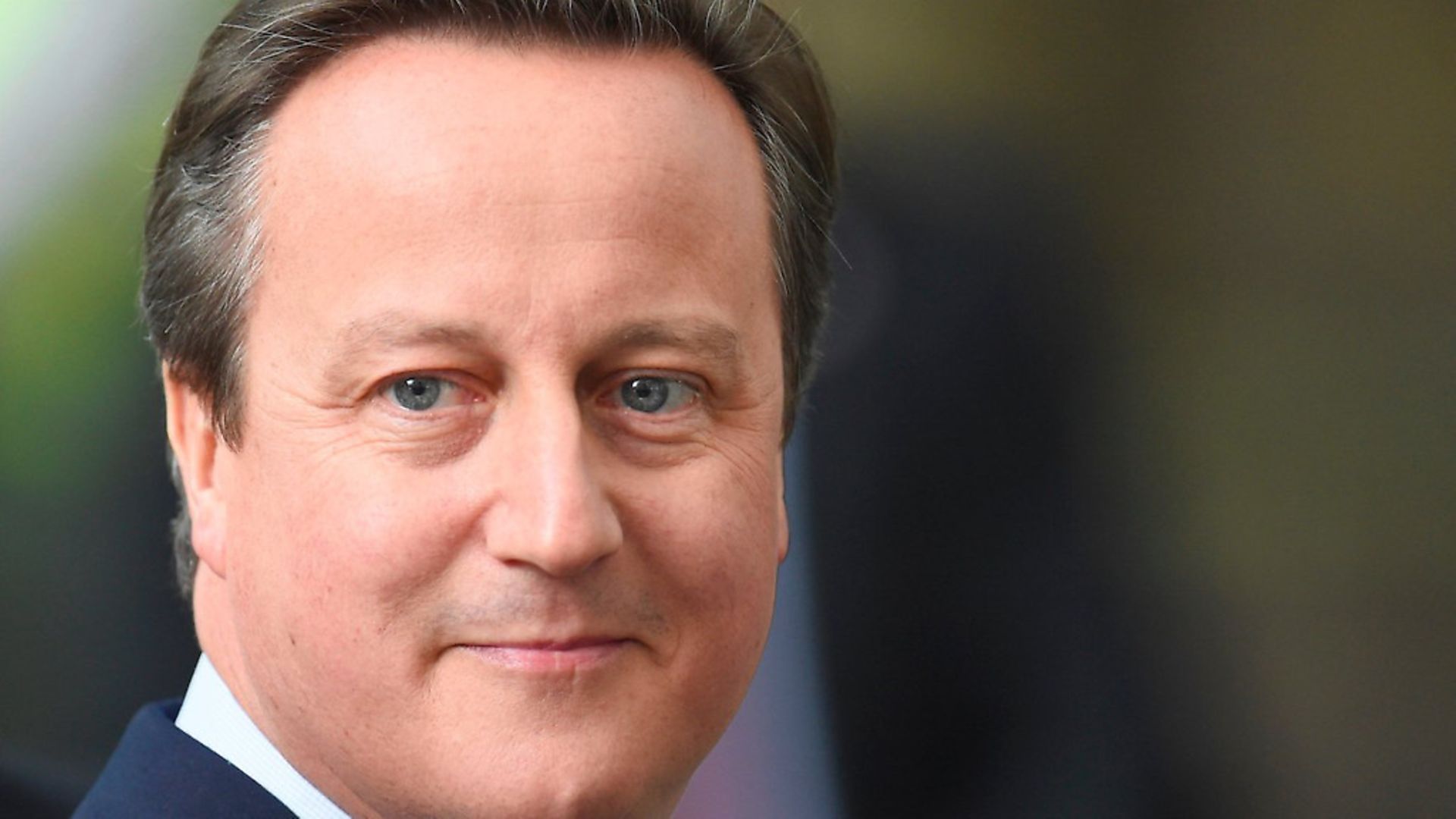
David Cameron was warned that his ‘stupid referendum’ about Britain’s EU membership could end in personal disaster, a new documentary reveals.
The serving European Council president, Donald Tusk, told Inside Europe: Ten Years of Turmoil, that Cameron confided in him that he only promised the 2016 vote because he expected to be in another coalition with the Lib Dems, who would veto it.
The BBC documentary series, due to be broadcast on January 28, features interviews with a broad swathe of political figures from all sides of Brexit, including former chancellor George Osborne, ex-foreign secretary William Hague, president of the European Commission Jean-Claude Juncker and former French presidents Nicolas Sarkozy and Francois Hollande.
Cameron, who quit as prime minister in 2016 after leading the failed Remain campaign, was the main notable figure not to take part.
The producers said today that he declined because he has signed an exclusive deal for his memoirs.
In a straight-talking interview, former Polish prime minister Tusk described talking to Cameron before the referendum, while he was trying to get concessions from EU leaders on migrant benefits in an attempt to head off Eurosceptic Tory MPs.
Tusk said he warned the PM there was ‘no appetite for revolution’, adding: ‘I asked David Cameron, ‘Why did you decide on this referendum, this – it’s so dangerous, so, even, stupid, you know’.
‘He told me – and I was really amazed and even shocked – that the only reason was his own party. He told me he felt really safe, because he thought at the same time that there’s no risk of a referendum, because, his coalition partner, the Liberals, would block this idea of a referendum.
‘But then, surprisingly, he won and there was no coalition partner. So paradoxically David Cameron became the real victim of his own victory.’
Tusk added that after the referendum he agreed with Cameron’s decision to step down as PM, adding: ‘It was like his day of reckoning was coming, reckoning for his biggest mistake in his life.’
The series also talked to other key figures of the years leading up to the Brexit vote, including Nick Clegg, the UK’s then EU ambassador Sir Ivan Rogers, and Cameron’s director of communications Craig Oliver.
There are also appearances from Brexiteers including Douglas Carswell, who quit the Tories to become Ukip’s first MP in 2014, and his fellow Eurosceptic, the Tory MEP Daniel Hannan.
They give accounts from all sides of the Brexit battle in the first episode of the series, We Quit.
The further two episodes will look at the Greek financial meltdown and the Syrian migrant crisis.
Cameron was also warned about his strong-arm negotiating tactics by the two French presidents who served during his time at Number 10, the programme revealed.
Sarkozy revealed how he warned Cameron about his attempt at strong-arm tactics with EU leaders over concessions on migrant rules and integration, telling him: ‘If you try to break our arm, you’ll get nothing.’
And Hollande revealed that during a visit to Chequers in 2015 he tried to talk the Tory leader out of holding the referendum.
The French politician told the documentary: ‘Nothing obliged him to hold the referendum when he did.
‘This would not be the first time that a commitment made at an election had not been kept afterwards, but he wanted to show he could negotiate successfully with Europeans.’
Oliver, a former BBC executive, told how Cameron raised the Second World War in a chat with German Chancellor Angela Merkel, during a break in migrant talks in 2016.
The PR man said Merkel arrived with little notice at the UK delegation’s rooms looking like ‘she was finally ready to do businesses and she had really focused on this’.
Oliver went on: ‘David Cameron said to her, ‘Look unless you can actually give me what I am asking for, if it is perceived that we are watering this down yet again then I’m just going to face a barrage of criticism and it is going to be a really serious problem’.
‘At that moment Angela Merkel turned to her aide and said ‘what is barrage?’ And David Cameron immediately jumped in and said ‘blitzkrieg’.
‘They all started laughing and she looked at him as if he was a bit of a naughty schoolboy and she suggested she was prepared to say yes.’
Theresa May also declined to take part in the programme, but faced criticism on screen from an old adversary, George Osborne, whom she sacked as chancellor.
Osborne, describing a meeting held by Mr Cameron to get ministers’ views on whether to back a referendum, said: ‘Theresa May didn’t say very much, which was par for the course in those meetings.’
Warning: Illegal string offset 'link_id' in /mnt/storage/stage/www/wp-includes/bookmark.php on line 357
Notice: Trying to get property 'link_id' of non-object in /mnt/storage/stage/www/wp-includes/bookmark.php on line 37






